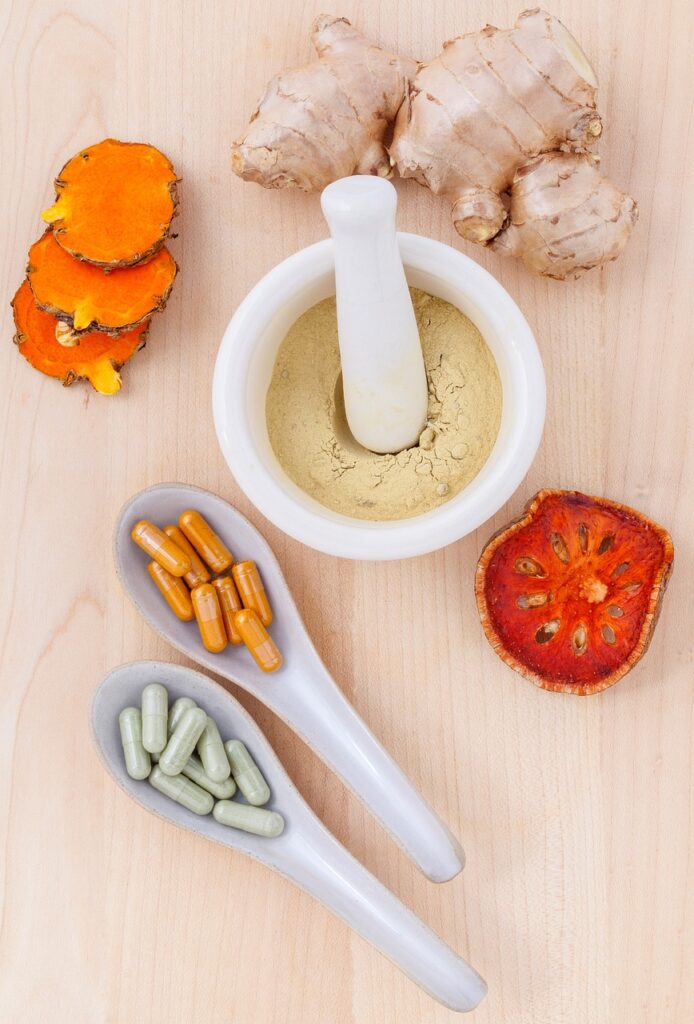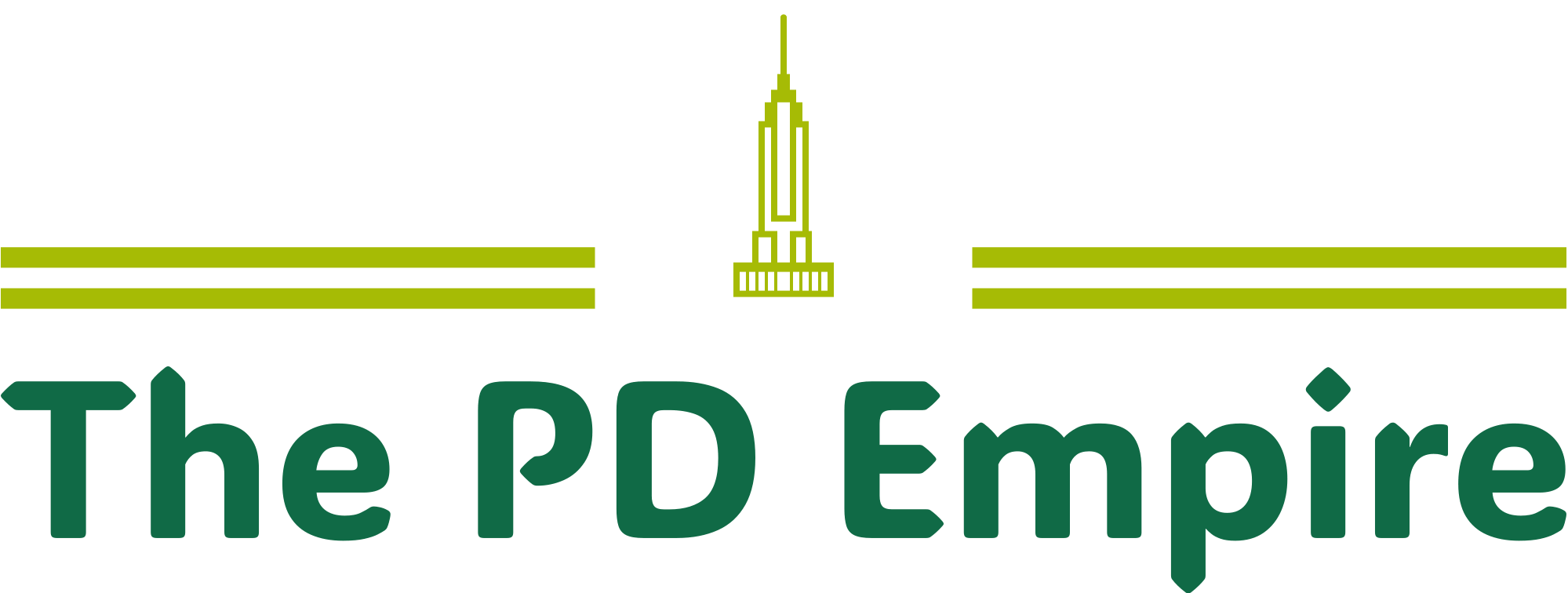Contents
- 1 Symptoms of Biotin Deficiency
- 2 Introduction to Biotin as a Vitamin Supplement
- 3 Overconsumption and Potential Side Effects
- 4 Interference with Laboratory Test Results
- 5 Risk of Masking Underlying Health Conditions
- 6 Potential Interaction with Medications
- 7 Lack of Scientific Evidence for Some Claims
- 8 Importance of Consulting Healthcare Professionals
- 9 Food Sources of Biotin
- 10 Importance of Consulting Healthcare Professionals
- 11 Conclusion
- 12 FAQs
What Is Biotin?
Biotin, also known as vitamin B7 or vitamin H, is a water-soluble vitamin that belongs to the B-complex group. It plays a crucial role in various metabolic processes in the body, including the breakdown of carbohydrates, fats, and proteins into energy. Biotin is essential for maintaining healthy skin, hair, eyes, liver, and nervous system function. It is naturally found in a variety of foods such as eggs, nuts, seeds, whole grains, and certain vegetables. However, some individuals may require biotin supplementation to meet their daily needs, especially if they have specific dietary restrictions or medical conditions affecting biotin absorption.

I has gained popularity as a supplement for promoting hair growth, improving skin health, and strengthening nails. While biotin offers several potential benefits, it’s essential to understand that like any supplement, there are potential drawbacks to its regular consumption.
Certainly! Here are the symptoms of biotin deficiency:
Symptoms of Biotin Deficiency

Biotin deficiency can manifest in various ways and may affect different systems in the body. Common symptoms of biotin deficiency include:
- Thinning Hair: One of the earliest signs of biotin deficiency is thinning or brittle hair. Biotin is essential for the production of keratin, a protein that forms the structural basis of hair. Without an adequate supply of biotin, hair may become weak, brittle, and prone to breakage.
- Brittle Nails: Biotin deficiency can also lead to brittle nails that are prone to splitting, cracking, or peeling. Healthy nails rely on adequate levels of biotin for strength and resilience. In the absence of sufficient biotin, nails may become weak and prone to damage.
- Dry Skin: Biotin plays a role in maintaining healthy skin by supporting lipid production and moisture retention. Inadequate biotin levels can lead to dry, flaky skin that may feel rough or irritated. Individuals with biotin deficiency may experience itching, redness, or inflammation of the skin.
- Fatigue: Biotin is involved in energy metabolism, helping to convert carbohydrates, fats, and proteins into usable energy for the body. Deficiency in biotin can disrupt energy production, leading to feelings of fatigue, weakness, and lethargy. Individuals may experience reduced stamina and increased tiredness, even with adequate rest.
- Muscle Pain: Biotin deficiency may contribute to muscle pain or muscle cramps due to impaired energy metabolism and reduced muscle function. Individuals with biotin deficiency may experience muscle aches, stiffness, or discomfort, particularly during physical activity or exertion.
- Neurological Issues: Biotin deficiency can affect neurological function, leading to symptoms such as depression, lethargy, and tingling sensations in the extremities (paresthesia). In severe cases, biotin deficiency may cause neurological disorders such as peripheral neuropathy or seizures.
- Impaired Immune Function: Biotin plays a role in supporting immune function by contributing to the production and activity of immune cells. Deficiency in biotin may weaken the immune system, making individuals more susceptible to infections, illnesses, and inflammatory conditions.
- Changes in Mood or Behavior: Biotin deficiency may also impact mood and behavior, leading to symptoms such as irritability, anxiety, or cognitive impairment. Adequate biotin levels are necessary for optimal brain function and mental well-being.
Introduction to Biotin as a Vitamin Supplement
Biotin is a water-soluble vitamin that plays a crucial role in various metabolic processes, including the breakdown of carbohydrates, fats, and proteins. It is naturally found in foods such as eggs, nuts, seeds, and certain vegetables. However, many people turn to biotin supplements to ensure an adequate intake, especially for those with specific dietary restrictions or hair and skin concerns.

Biotin deficiency is relatively rare but can occur in individuals with certain genetic disorders, prolonged intravenous feeding without biotin supplementation, or those consuming raw egg whites regularly. Symptoms of biotin deficiency may include thinning hair, brittle nails, dry skin, fatigue, muscle pain, and neurological issues such as depression, lethargy, and tingling sensations in the extremities. Recognizing and addressing these symptoms promptly is crucial to prevent potential complications associated with biotin deficiency.
Benefits of Taking Biotin
Before delving into the drawbacks, it’s important to acknowledge the potential benefits of biotin supplementation. Research suggests that biotin may support healthy hair, skin, and nails. Additionally, some studies have shown promising results regarding biotin’s role in improving glucose metabolism and supporting nerve function.

Biotin is widely recognized for its role in promoting healthy hair, skin, and nails. It supports the production of keratin, a protein that forms the structural basis of hair, skin, and nails, thereby contributing to their strength and resilience. Additionally, biotin is involved in glucose metabolism, helping to regulate blood sugar levels and support overall energy production. Some studies also suggest that biotin may have potential benefits for nerve function, cardiovascular health, and fetal development during pregnancy.
Overconsumption and Potential Side Effects
While biotin is generally considered safe when consumed in recommended amounts, overconsumption can lead to adverse effects. One of the most commonly reported side effects of excessive biotin intake is skin issues, including acne and rashes. Some individuals may also experience hair thinning or brittle nails, ironically the very issues they sought to address with biotin supplementation.
While excessive intake may lead to adverse effects. Common side effects of biotin supplementation include digestive issues such as nausea, diarrhea, and cramping. In rare cases, high doses of biotin may cause skin reactions such as acne or rashes. Moreover, biotin supplements can interfere with certain laboratory tests, leading to inaccurate results and potentially misdiagnosed medical conditions. Individuals considering biotin supplementation should consult healthcare professionals to assess potential risks and benefits.
Interference with Laboratory Test Results
Another potential drawback of regularly taking biotin is its interference with certain laboratory test results. Biotin can skew the outcomes of tests commonly used to measure hormone levels, thyroid function, and cardiac biomarkers. This interference can lead to inaccurate diagnoses and inappropriate medical treatments, posing significant risks to patient health.
Consistently taking biotin enhancements can obstruct the consequences of different research facility tests, including those used to gauge chemical levels, thyroid capability, and cardiovascular biomarkers.
Biotin obstruction happens in light of the fact that biotin is a part of specific research center tests, for example, immunoassays, which are ordinarily used to quantify these biomarkers. Biotin in the circulation system can predicament to these examine parts, prompting erroneously raised or diminished test results. This impedance can bring about erroneous conclusions, improper clinical medicines, and possibly serious dangers to patient wellbeing.
For instance, biotin obstruction in chemical level tests can prompt misdiagnosis and ill-advised administration of conditions like diabetes, fruitlessness, or hormonal lopsided characteristics. Essentially, erroneous thyroid capability test results because of biotin obstruction can defer the finding and treatment of thyroid issues, as talked about prior.
Additionally, biotin impedance in cardiovascular biomarker tests, for example, troponin levels used to analyze coronary failures, can prompt unseemly clinical mediations or superfluous hospitalizations.
To relieve the dangers related with biotin impedance, medical care suppliers ought to know about the likely impacts of biotin supplementation and think about elective testing strategies or change translation measures for impacted examines. Patients who are taking biotin enhancements ought to illuminate their medical services suppliers, particularly prior to going through any lab tests, to guarantee precise experimental outcomes and proper clinical administration. This proactive methodology can assist with forestalling likely mischief and guarantee ideal patient consideration.
Risk of Masking Underlying Health Conditions
Regularly taking biotin supplements can mask underlying health conditions by altering the results of diagnostic tests. For example, biotin interference in thyroid function tests may obscure the detection of thyroid disorders such as hypothyroidism or hyperthyroidism. This delay in diagnosis can prevent individuals from receiving timely medical interventions, potentially worsening their health outcomes.
Precisely, you’ve pinpointed a huge concern. Consistently taking biotin enhancements can to be sure obstruct the exactness of indicative tests, possibly concealing basic ailments and prompting deferred or missed analyze.
One eminent model is the obstruction of biotin in thyroid capability tests. Biotin supplementation can cause erroneously raised or diminished brings about thyroid chemical tests, which are significant for diagnosing thyroid problems like hypothyroidism or hyperthyroidism. This impedance can prompt error of experimental outcomes, postponing the analysis and fitting treatment of thyroid circumstances.
Postponed finding and treatment of thyroid problems can have serious results, including deteriorating side effects, difficulties, and unfriendly wellbeing results. Hence, people who are consistently taking biotin enhancements ought to illuminate their medical care suppliers, particularly prior to going through any analytic tests, to guarantee precise understanding of results and convenient ID of any basic ailments.
Medical care experts can do whatever it may take to moderate the impacts of biotin impedance, for example, encouraging patients to briefly end biotin supplementation before specific research center tests or utilizing elective testing techniques that are not impacted by biotin obstruction. By monitoring the potential for biotin obstruction and playing it safe, medical services suppliers can assist with guaranteeing exact determination and ideal administration of ailments.
Potential Interaction with Medications
Biotin supplements have the potential to interact with certain medications, affecting their efficacy or safety. For instance, biotin may interfere with drugs used to treat epilepsy, causing reduced effectiveness or increased risk of adverse effects. It’s crucial for individuals taking medications to consult their healthcare provider before adding biotin supplements to their regimen.
. Biotin supplements can possibly communicate with specific meds, which can influence their viability or wellbeing. One striking model is the expected communication among biotin and certain medications used to treat epilepsy, like anticonvulsants.
Biotin can slow down the lab testing of specific medications used to oversee epilepsy, possibly prompting erroneous outcomes. Besides, there have been reports recommending that biotin supplementation might decrease the adequacy of specific anticonvulsant prescriptions or increment the gamble of seizures in people with epilepsy.
Given these possible associations, it’s fundamental for people taking meds, particularly those for conditions like epilepsy, to counsel their medical care supplier prior to adding biotin enhancements to their routine. A medical care proficient can assess the likely dangers and advantages, think about any basic ailments, and give customized suggestions to guarantee the protected and viable utilization of the two drugs and enhancements. This approach can assist with forestalling unfavorable impacts and streamline treatment results.
Lack of Scientific Evidence for Some Claims
While biotin is widely promoted for its benefits on hair, skin, and nails, some claims lack robust scientific evidence. Limited research exists to support the use of biotin for these purposes, and the results of studies are often mixed. Therefore, individuals should approach biotin supplementation with caution and realistic expectations. it’s significant to move toward biotin supplementation with alert and sensible assumptions, particularly with regards to claims about its advantages for hair, skin, and nails.
While biotin is frequently advertised and elevated for its capability to work on the wellbeing and presence of hair, skin, and nails, the logical proof supporting these cases is restricted and blended. While certain investigations recommend a likely advantage, others have found practically zero impact.
Moreover, a large number of the examinations that really do show constructive outcomes of biotin supplementation on hair, skin, and nails are much of the time little in scale or of bad quality, making it challenging to reach conclusive determinations. Also, individual reactions to biotin supplementation can differ generally, and factors like eating regimen, way of life, and hereditary qualities might assume huge parts in deciding its viability.
Accordingly, people thinking about biotin supplementation for further developing hair, skin, and nails ought to move toward it with sensible assumptions and know that the proof supporting its adequacy for these objects isn’t vigorous. Talking with a medical care proficient can assist people with gauging the likely advantages and dangers of biotin supplementation and settle on informed conclusions about whether it’s proper for their necessities.
Importance of Consulting Healthcare Professionals
Given the potential drawbacks and uncertainties surrounding biotin supplementation, it’s essential for individuals to consult healthcare professionals before starting any new supplement regimen. A qualified healthcare provider can assess individual health needs, evaluate potential risks, and provide personalized recommendations based on the latest evidence and medical guidelines.
Talking with a medical care proficient prior to beginning any new enhancement routine is significant. While biotin supplementation is by and large thought to be ok for a great many people at suggested portions, there are possible disadvantages and vulnerabilities that ought to be thought of.
Biotin enhancements can slow down specific lab tests, prompting mistaken results, which can be especially dangerous assuming somebody is going through clinical testing. Moreover, there’s a proof to propose that biotin supplementation can influence the exactness of specific indicative tests, for example, thyroid capability tests.
Additionally, extreme biotin admission might possibly prompt antagonistic impacts, including skin rashes, stomach related issues, and collaborations with drugs. For people with specific ailments, for example, epilepsy or kidney issues, biotin supplementation may not be prudent without clinical management.
By talking with a medical care proficient, people can get customized direction custom-made to their particular wellbeing needs and conditions. Medical services suppliers can assess possible dangers, consider any hidden ailments or meds, and give proof based suggestions to assist people with settling on informed conclusions about supplement use. This customized approach can assist with limiting dangers and advance wellbeing results.
Food Sources of Biotin
Incorporating biotin-rich foods into the diet is the most natural way to ensure an adequate intake of this essential vitamin. Foods high in biotin include egg yolks, organ meats (such as liver), nuts (especially almonds, peanuts, and walnuts), seeds (such as sunflower seeds), whole grains (including oats and wheat bran), legumes (such as beans and lentils), and certain fruits and vegetables (such as avocados, sweet potatoes, and bananas). Consuming a balanced diet that includes a variety of these nutrient-rich foods can help individuals meet their biotin requirements without the need for supplementation.

Certainly! Here are some common food sources of biotin:
Biotin is naturally present in a variety of foods, and incorporating these nutrient-rich options into your diet can help ensure an adequate intake of this essential vitamin. Here are some common food sources of biotin:
- Eggs: Egg yolks are one of the richest sources of biotin. Consuming whole eggs, whether boiled, scrambled, or poached, can provide a significant amount of biotin.
- Organ Meats: Organ meats such as liver are excellent sources of biotin. Adding liver to your diet, either cooked as a main dish or incorporated into recipes like pâté, can boost your biotin intake.
- Nuts: Certain nuts, particularly almonds, peanuts, and walnuts, are good sources of biotin. Snacking on a handful of nuts or adding them to salads, stir-fries, or baked goods can increase your biotin consumption.
- Seeds: Sunflower seeds are particularly rich in biotin and can be enjoyed as a snack or sprinkled over salads, yogurt, or oatmeal for added crunch and nutrition.
- Whole Grains: Whole grains such as oats and wheat bran contain biotin in smaller amounts but can still contribute to your overall intake. Incorporating whole grain products like oatmeal, whole wheat bread, and brown rice into your meals can provide additional biotin.
- Legumes: Beans and lentils are plant-based sources of biotin. Including legumes in soups, stews, salads, and side dishes can boost your biotin intake while providing protein, fiber, and other essential nutrients.
- Avocados: Avocados are not only rich in healthy fats but also contain biotin. Enjoying avocado toast, adding avocado slices to sandwiches and salads, or blending avocados into smoothies are delicious ways to incorporate this nutrient-dense fruit into your diet.
- Sweet Potatoes: Sweet potatoes are a nutritious source of biotin and other vitamins and minerals. Roasting, steaming, or mashing sweet potatoes can enhance their flavor and nutritional value.
- Bananas: Bananas contain small amounts of biotin and can be enjoyed as a convenient and portable snack or added to smoothies, yogurt, or cereal for natural sweetness and added nutrition.
Incorporating a variety of these biotin-rich foods into your diet can help ensure a sufficient intake of this essential vitamin. Remember to consume a balanced diet that includes a wide range of nutrient-dense foods to support overall health and well-being. If you have specific dietary restrictions or concerns about your biotin intake, consult with a healthcare professional or registered dietitian for personalized recommendations.
Importance of Consulting Healthcare Professionals
Given the potential drawbacks and uncertainties surrounding biotin supplementation, it’s essential for individuals to consult healthcare professionals before starting any new supplement regimen. A qualified healthcare provider can assess individual health needs, evaluate potential risks, and provide personalized recommendations based on the latest evidence and medical guidelines.
Alternatives to Biotin Supplementation
For those seeking to support hair, skin, and nail health without relying solely on biotin supplements, there are alternative approaches to consider. These may include adopting a balanced diet rich in essential nutrients, practicing good skincare habits, managing stress levels, and addressing underlying health issues through proper medical evaluation and treatment.
For individuals who may have difficulty obtaining sufficient biotin from dietary sources alone, biotin supplements are available in various forms, including capsules, tablets, and gummies. These supplements typically provide biotin in doses ranging from 30 to 10,000 micrograms per serving. It’s important to follow the recommended dosage guidelines provided by healthcare professionals or the product manufacturer to avoid potential side effects associated with excessive biotin intake. Additionally, individuals with underlying medical conditions or those taking medications should consult healthcare providers before starting any new supplement regimen to ensure safety and efficacy.
Conclusion
While biotin offers potential benefits for hair, skin, and nail health, regularly taking biotin supplements may have drawbacks that individuals should be aware of. These include the risk of adverse effects, interference with laboratory test results, masking underlying health conditions, potential medication interactions, and the lack of scientific evidence for some claims. To make informed decisions about biotin supplementation, individuals should consult healthcare professionals and explore alternative approaches to supporting overall health and well-being.
FAQs
- Is it safe to take biotin every day? It’s generally safe to take biotin supplements at recommended doses. However, excessive intake may lead to adverse effects.
- Can biotin cause weight gain? There’s no evidence to suggest that biotin causes weight gain. Its role in metabolism may actually support weight management in some individuals.
- How much biotin is too much? The recommended daily allowance for biotin is 30–100 micrograms for adults. Exceeding this amount may increase the risk of side effects.
- Can biotin supplements interact with birth control pills? Biotin supplements are unlikely to interact with birth control pills. However, it’s advisable to consult a healthcare provider for personalized advice.
- Is biotin safe during pregnancy? Biotin is generally considered safe during pregnancy when taken at recommended doses. Pregnant women should consult their healthcare provider before starting any new supplement regimen

